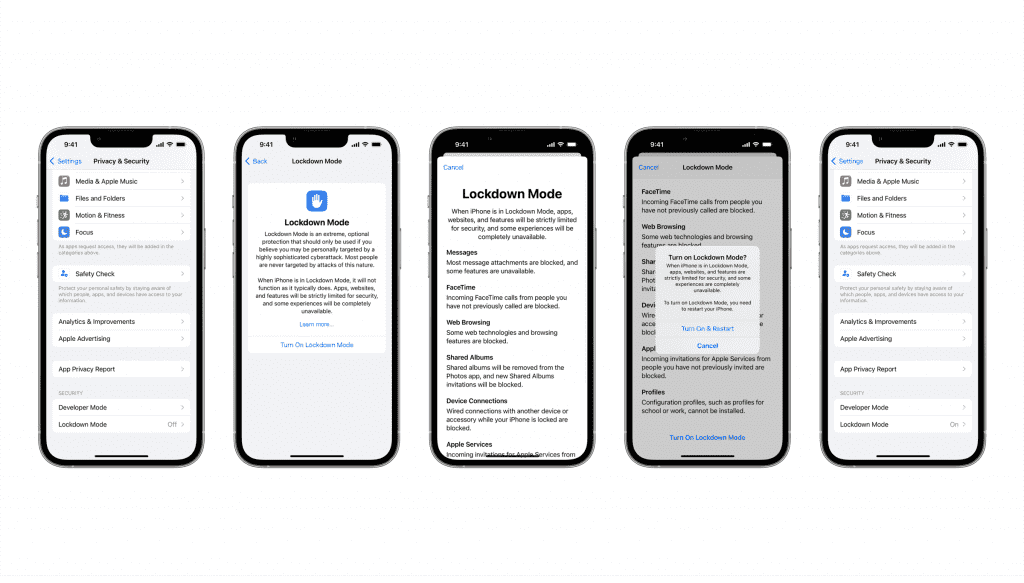Apple revealed a new feature for iPhones called Lockdown Mode on Wednesday to protect high-profile users like politicians and activists against state-sponsored hackers.
This feature disables many preview features in iMessage, limits JavaScript on the Safari browser, prevents new configuration profiles from being installed, blocks wired connections, prevents the device’s data from being copied, and shuts down incoming Apple services requests, including FaceTime.
The tech giant will pay up to $2 million to researchers who find a security flaw in Lockdown Mode.

The state-sponsored attacks that Lockdown Mode is targeting employ very expensive tools sold directly to law enforcement agencies or sovereign governments, and use undiscovered bugs to gain a foothold into the iPhone’s operating system. From there, the attackers can do things like control its microphone and camera, and steal the user’s browsing and communications history.
“While the vast majority of users will never be the victims of highly targeted cyberattacks, we will work tirelessly to protect the small number of users who are,” Ivan Krsti?, Apple’s head of security engineering and architecture, said in a statement.
The best know version of the mercenary spyware is Pegasus, which was developed by NSO Group in Israel. Researchers at the University of Toronto and Amnesty International have recently discovered and documented versions of this kind of spyware targeting iPhones.
NSO Group has previously said that its technology is used lawfully by governments to fight pedophiles and terrorists.

Last November, the U.S. Commerce Department blacklisted NSO Group, preventing U.S. companies from working with it, one of the strongest measures the U.S. government can take to strike at foreign companies.
Lockdown Mode will not be on by default, but can be turned on from inside the iPhone’s settings with a single tap, Apple said. It will also be available for iPads and Macs.
The new feature will be available for testing on a beta version of iOS this week before its planned wide release in the fall.


